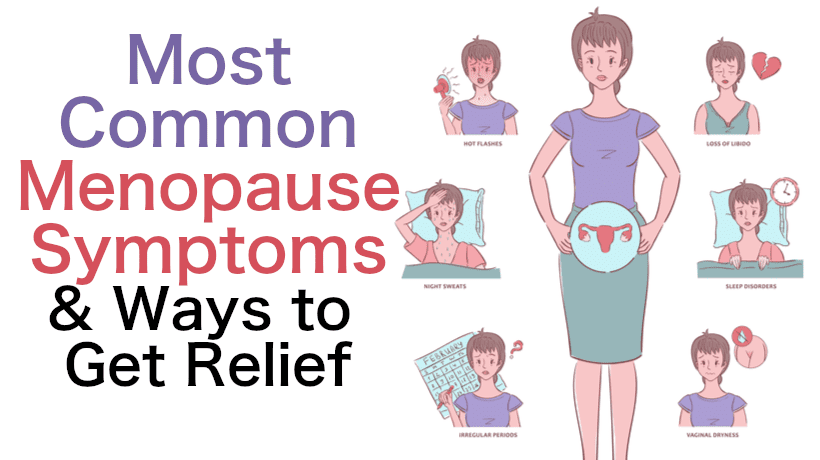Women may have different symptoms at menopause at different ages in their life. As your body goes through this transformation, you may have questions as to what may be changing. According to the National Institute on Aging, these are the most common changes you might notice at midlife, and here are some ways to relieve them:
Change in your period
This can be one of the symptoms you notice first. Your periods may no longer be regular. They may be shorter or longer, and you could bleed more or less than usual. According to Valinda Riggins Nwadike, MD, once you have been without a period for 12 months, you’re officially in menopause. To answer any questions you may have, be sure to ask your doctor.
Hot flashes
A hot flash is a sudden feeling of heat in the upper part or all your body. Heavy sweating and cold shivering can follow. Hot flashes can be mild or strong enough to wake you up from your sleep. They can last between 30 seconds and 10 minutes. Ways to help reduce hot flashes are trying to avoid excessive stress, caffeine, heat, tight clothes, and spicy foods. You can also keep a fan nearby for when they do occur.
Vaginal dryness and bladder control
Once in menopause, you may experience vaginal dryness. Which can make sexual intercourse uncomfortable. Be sure to communicate how you are feeling to your partner. The dryness can be helped with vaginal lubricants and creams, topical estrogen cream, and vitamin E suppository. You may also have other health problems, such as vaginal or bladder infections. This can include incontinence, the loss of bladder control. If you feel like something is abnormal, be sure to talk to your doctor. Here are some suggestions to help relieve symptoms of incontinence caused by menopause:
Sleep
You may feel like you are having trouble getting a good
night’s sleep. This may be due to night sweats or not being able to fall back
to sleep after waking up during the night. Ways to help get a better night’s
sleep once starting menopause are taking a nap during the day, exercise
regularly, and creating a sleeping routine so your body knows when it is time
to go to bed and wake up.
According to studies by the University of Illinois, some women may experience an increase in sex drive, while others experience a decrease. This can be due to a decrease in hormone levels. Effects of decreased estrogen can cause vaginal atrophy, which narrows and shortens the vagina. The uterus can also prolapse and lead to discomfort, painful sex, and urinary leakage.
Jessica Shepard, MD, claims there is no shame in helpful medications. “These symptoms can be managed using medications, including hormonal replacement therapy (HRT). HRT can come in various forms, like pills, foams, patches, and vaginal creams. The goal of this therapy is to help vasomotor symptoms and vulvovaginal atrophy.”
Mood changes
You may begin to feel yourself get moodier and more irritable around the time of menopause. This can be due to the stress of not only your changes, but the changes in your family like growing children or aging parents. Depression, or feelings of tiredness can also affect mood changes. The way to help relieve these feelings is to try and keep a positive mindset.
According to a study performed by the Journal of the North American Menopause Society, performing 50 minutes of aerobic training four times a week helped to alleviate several menopausal symptoms, including night sweats, irritability, and mood swings. This is because exercise and physical activity release endorphins and other feel-good chemicals in the brain. They also suggest eating healthy foods and get enough sleep each night. If you are suffering from severe depression or anxiety, you may want to speak to your doctor for the best advice tailored to you.
Sources:
You may also be interested in…
This content was originally published here.







